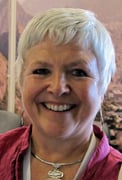Policy Bite: The role of primary care in the ageing population
 español
español
Prof Amanda Howe, President-elect, writes:
On 13 April 2015, I have the privilege of attending the World Health Summit in Kyoto, at the invitation of an officer of one of our member organizations (Dr Tesshu Kusaba, Executive Vice President of Japan Primary Care Association, with Dr Ryuki Kassai’s support). Among other commitments, I shall be part of a panel discussing ‘Primary Care in the Super-Ageing Society’. My preparation for this has drawn me to the following conclusions:
Many higher and middle income countries are enjoying falling mortality, and more social and medical opportunities to prevent ill health. People are living longer, and there are more treatments for long – term conditions such as diabetes and cardiovascular disease that can maintain health and good quality of life in spite of NCDs. However, there are also more older people with overall higher medical and social care costs in later life; and, in countries with reduced birth rates, there are also fewer people available to look after them at home. So there is a greater need for society to find new ways to maintain quality of life and function in spite of ageing.
We shall argue that therefore health services need strengthening through primary care. As Barbara Starfield once wrote(1):-
“
The achievement of equity in health services and health is an imperative everywhere. Primary care is inherently a more equitable level of care than other levels of care. It is less costly (hence sparing resources that could be devoted to providing better services to more disadvantaged populations), and through its key features, narrows disparities in health between more and less socially deprived..."
We also (still!) need to make an argument that family medicine is an essential component within primary care to achieve excellent outcomes for the ‘super-ageing society’: this is because family doctors can deal with assessment and management of multiple medical problems, which assists the cost-effectiveness of primary care. As Margaret Chan said (2):
“..
in the absence of a family physician in overall charge of care, treatment by several hospital specialists can lead to duplication of investigations and procedures, and risks of drug interactions to which the old are prone” ..and
“The world needs more family physicians!”
Family doctors are community based medical generalists who have been trained to deal with people across all life stages: a generalist who can deal with all types of health problem at point of first contact. We offer a service that is
“comprehensive, accessible, focuses on a specific community, allows continuity over time, and is centred on the care of people not specific parts of their body or diseases”.
The drivers to secure this service for older people can act at Individual patient, professional, team, community, societal and health system level. These include training doctors and nurses in community settings in regular contact with elders; this reduces stereotyping, and gives positive experiences of older people’s wisdom and resilience. It is also an ideal opportunity to learn to manage co-morbidities effectively in non-emergency settings, and to appreciate that some of the specific problems of ageing and frailty (e.g osteoporosis, cataracts, falls ) are not same as NCDs.
Our clinical service design needs to help older people, and to be integrated around the person not their diseases. Access, availability, affordability, acceptability all matter, as do the skill mix needed to meet the health and social needs of older people. There are of course roles for family doctors, nurses, and health care assistants; but also in this age group there is significant need for social and community care support, home assessment, and nursing care, as well as Interface with other services and specialities. Remote technologies, local community support, home based care, housing and good public transport can all revolutionise the older person’s life and lifestyle. Health systems need to incentivise and reward good care for older people, in both the primary care and hospital sector: this may mean additional resource allocation, training, and financial drivers such as no cost for medications over 65, or annual care plans including vaccines and NCD reviews.
At the end of the day good primary health care for older people reflects the value we place on our elders; the ‘pay back’ we offer for their contribution, and the resources they still offer us. It is a test of civilised societies, a moral imperative, and what we hope for ourselves in our old age. Patients can help us by being well informed, self caring where possible, and by helping others in the community.
In conclusion, primary care for a SUPER aging society must:
• Have care of the elderly part of its core function
• Be resourced to give great health care in local community in a way that is cost effective and comprehensive
• Include nurses and other health workers
• Work alongside other community and hospital resources – but avoid hospital admission if possible
• Enable patients and their families to live well for as long as possible.
I shall report back after the meeting, with new ideas, new contacts, and look forward to seeing Japan in the spring. (and for those facing autumn and winter ….see you on the other side!)
Prof Amanda Howe
References
1. Starfield, B., Shi, L. and Macinko, J. (2005), Contribution of Primary Care to Health Systems and Health.
Milbank Quarterly, 83: 457–502.
2 Chan M. Pers.comm. - Speech to the Hong Kong Academy of Family Physicians 2013